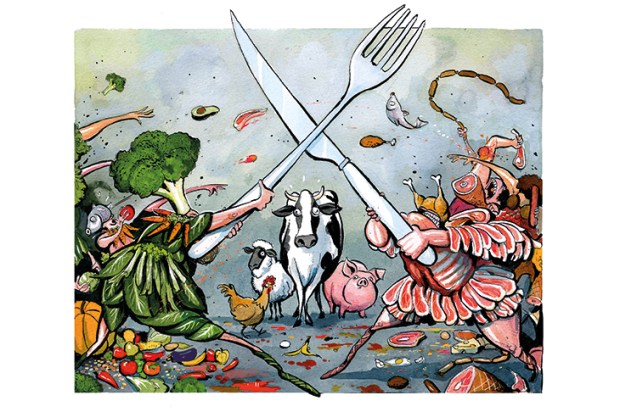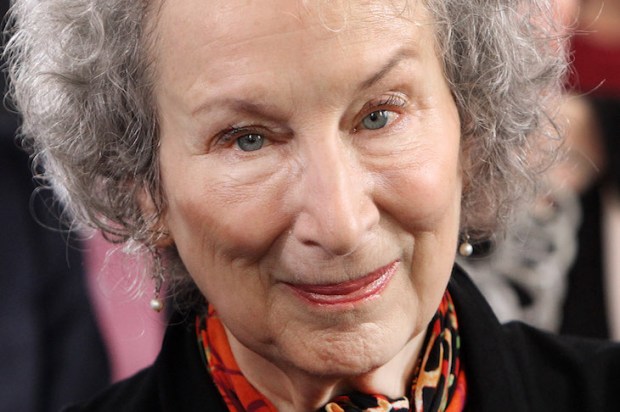When the pictures of the dead came in, it was hard to take, even from a distance. There was Georgina Callander, 18, a bespectacled Ariana Grande ‘superfan’ who had tweeted that she was ‘so excited’ to go to the concert in Manchester Arena. There was Saffie Roussos, aged 8 and still at primary school, who went with her mother and older sister. There was Olivia Campbell, aged 15. I looked at their bright faces and thought of all the love their families had carefully decanted into them over the years, their wealth of possibility. Then on Monday night a suicide bomber smashed up all their futures in an instant. What an act of vandalism against humanity. What grubby blasphemy.
The statement from Isis duly arrived, full of the usual nonsense about ‘a soldier of the Khilafah’ placing explosive devices ‘in the gatherings of the Crusaders’. That meant a twisted youth strolling into a hall foyer to murder adults and children. In Isis’s world-view the victims got what they deserved for daring to be in ‘the shameless concert arena’ with music, dancing and mingling of the sexes.
Terrorism is not random or accidental. It is a conversation with the state conducted by means of extreme violence. Each atrocity has its point to make. With previous terrorist incidents, Isis has emphasised its hatred of Christians, say, or street revellers. This one was meant largely for the girls. Ariana Grande is a singer particularly beloved by pre-teen and teenage girls, although women, men and boys such as John Atkinson were caught up in the horror too. But Islamic State, like some psychopathic stalker, is obsessed with female propriety. In the streets of Isis-controlled Raqqa, women must be totally covered and veiled in black. It is heavily punishable to wear perfume or even talk loudly in public. One woman of 21 said in a clandestine interview: ‘We are dead, but we are still breathing.’
What must it be like, to deprive girls and women of fresh air and sunshine, open laughter, work, friendships, perfume and power, to make them feel ‘dead but still breathing’? What does it signify to feel so menaced by their independence that a large part of your life revolves around restricting it? In Raqqa, jihadis are taught to believe that they have hit the domestic jackpot with a wife at home who is rendered compliant mainly by the threat of beating or destitution. Yet such coercive arrangements — what Larkin once described as ‘fulfilment’s desolate attic’ — do notably little to diminish Isis members’ existential rage: they seem to increase it.
Freedom is imperfect and risky. Once you hand it to someone, there’s no telling how they’ll use it. Few people realise that more keenly than the parents of a teenage girl. The world is waiting for her, in ways that she might not yet anticipate, but she is raring to get out into it. So most British parents make a thousand tiny compromises, watching girls inch towards full independence like climbers in a potentially faulty harness. We wrap them in promises and incantations: ‘Text me when you get there’, ‘Stay close to your friends’, ‘Be careful’, ‘I love you’. Events such as the Ariana Grande concert are supposed to be the first, tentative flights near the nest.
To my adult eyes, Grande is a cleverly calibrated mixture of sexiness and childishness, with her cat-ear headbands, tiny costumes and huge voice. But to many teenagers she’s the definition of worldly enchantment. My own children haven’t hit their teens yet, but I know what’s coming. They will like music I don’t. They will tell their friends things they won’t always tell me. They will get themselves into occasional scrapes and find their own clumsy ways out of trouble. And sometimes I will have to shut my eyes and trust that the world will be kind to them.
The world was far from kind at 10.30 p.m. in the Arena foyer on Monday night. The bomber couldn’t even see the glaring innocence of the teenage concert-goers, there in party clothes to test out what it might feel like to be a grown-up. Through his own skewed, brittle lens, he imagined he was witnessing sexualised obscenity, interpreted as a deep affront. He wanted to shut the revellers up, to close them down.
He thought he’d make an example of them. Well, so he did. Despite the heartbreaking pain of their families, the victims are examples of those who take joy in life, and will remain so. Joy poses the most serious challenge to fanaticism, as Islamist terrorists know well. That’s why they’ll die to destroy it.
Got something to add? Join the discussion and comment below.
Get 10 issues for just $10
Subscribe to The Spectator Australia today for the next 10 magazine issues, plus full online access, for just $10.
You might disagree with half of it, but you’ll enjoy reading all of it. Try your first month for free, then just $2 a week for the remainder of your first year.















Comments
Don't miss out
Join the conversation with other Spectator Australia readers. Subscribe to leave a comment.
SUBSCRIBEAlready a subscriber? Log in